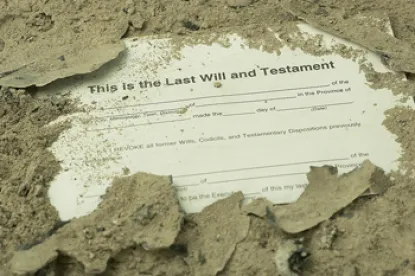When an Executor named under a Last Will and Testament seeks to probate the Will of the Decedent, the original copy containing the original signatures of the Decedent must be submitted to the Surrogate’s Office. What happens, however, if the original copy with the original signatures cannot be located? Under such circumstances, the only option may be to seek to probate a copy of the original Will.
In general, if the original document cannot be located and all beneficiaries or potential heirs of the Estate agree to probating a copy, the process can be smoothly completed once a proper application is filed. On the other hand, should a named beneficiary or a potential heir of the Estate challenge the copy of the Will being submitted for probate, then in that event, the resolution may become onerous.
In general, if an original of a Will cannot be located there is a presumption that the original was destroyed by the Decedent, and therefore, was revoked. Once a Will has been revoked or destroyed, either the decedent will be deemed to have died without a Will, or possibly a previous Will can be submitted for probate provided an original document with original signatures exists.
Should a party file an action to probate a copy of the purported Last Will and Testament, this party must rebut the presumption that the original was not destroyed and revoked by clear and convincing evidence. This is a very difficult burden of proof to sustain, as the evidence must clearly and convincingly demonstrate that the original was not destroyed, but instead, was lost and that the Court is justified in probating a copy of the Will.
Any person who opposes probating a copy of a Will may seek to present proof that the Will was in fact revoked. As such, a hearing on the merits before the Court is typically required in contested matters. During an evidentiary hearing, the Court would have to determine whether the copy of the Will should be admitted to probate and whether the legal presumption of revocation has been rebutted by clear and convincing evidence by the proponent of the Will.
As discussed above, should the burden of proof not be met by the proponent of the copy of the Will, then in that event, the Decedent will have deemed to have died without a Will. It is possible, however, if a pre-existing Will exists which contains original signatures that this previous Will could be admitted to probate. As such, seeking to probate a copy of a lost Will can be difficult and costly should a party oppose its admission to probate.



 />i
/>i

